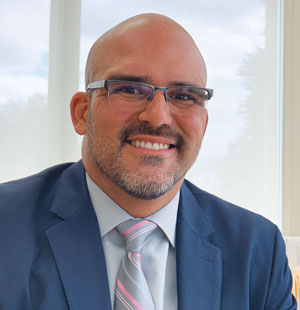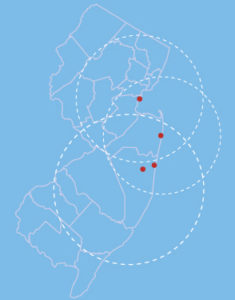Services to Help Transition Special Needs Children to Adulthood

Special needs children may remain in school through age 21 or 22, but planning for the transition out of the school system should start well before then. As a member of the school community, your family enjoys a wealth of expertise and resources, as well as a predictable routine, but soon you will be on your own. Leaving the school environment can feel like “falling off a cliff” as one parent of a special needs adult said.
Here are some of the organizations, services, resources, and community connections that will help your child transition to adulthood.
They are dedicated to helping you and your child succeed, so be proactive and find out as much as you can about the ways they can help your family.
Division of Vocational Rehabilitation Services (DVRS)
Each state has an organization that provides employment services to people with disabilities. Schedule an appointment with a Vocational Rehabilitation counselor about the services they offer. A VR counselor can give a formal assessment of your child’s skills and interests to help choose the direction of the job search. They can also help with writing a resume. Also, be sure to schedule an evaluation to develop an Individual Plan for Employment (IPE). A variety of employment-related services can be provided under an IPE, including training, counseling, job placement, and supported employment. counselors will assist you in the vocational assessment process to develop an Individualized Plan for Employment (IPE). The services included in your plan will depend on the job goal and special needs. For some, the services may include job training or coaching. Others may need special devices such as a hearing aid or modifications to a vehicle.
Division of Developmental Disabilities (DDD)
Complete a registration for eligibility with the DDD. In the year prior to graduation, the DDD will notify you to take the NJ CAT. This is the mandatory assessment used to determine an individual's eligibility to receive Division-funded services. The results of the NJ CAT will determine the budget for particular services for your child. The DDD will send you a tier assignment letter.
Once the DDD notifies you of your tier level, complete the Support Coordinator Selection form right away. If you don’t choose, you will be auto-assigned a support coordinator.
It’s a good idea to put two choices so you are more likely to get the coordinator of your choice. Your support coordinator will work with you to develop the Individualized Service Plan (ISP), which authorizes services and providers. Your ISP may authorize a combination of individual employment, small group employment, volunteering, day habilitation, or other services during the week.
Community Care Program (CCP)
Request to be added to the CCP waiting list. The CCP provides services for eligible individuals who live in a provider-managed setting, such as a group home or supervised apartment, or who live in their family home or their own apartment or home, to assist them to live as independently as possible.
NJ Transit Access Link
Think about transportation to and from your child’s daily activities. Access Link was established as an accommodation for people with disabilities who are unable to use the local bus service. Schedule a test ride with your child to gauge their comfort level with public transportation.
Additional Points to Keep in Mind
- DDD registration should be done at the age of 18 not the year prior to graduation.
- When choosing a support coordinator, it is always a good idea to ask for recommendations from friends, school or Primetime Center. Call and interview different Support Coordinators prior to making your decision. Choosing a good support coordinator is critical for success in the adult world.
- You are able to access your child's budget as soon as they turn 21 . You do not have to wait until they graduate. If you have not received a tier assignment by the age of 21 reach out to DDD to get it.
- CCP. If both parents are 55 or older or if there is a reason a parent cannot support a child once they turn 21, they child can be put on the Priority One wait list for CCP. This will escalate their application and placement on the waitlist.

Alpha School an private special education school in New Jersey
Our Mission at The Alpha School is to help all of our special needs students with the learning, social, language, and behavioral support they deserve. Our highly skilled staff are committed daily to helping each student to becoming the best they can while providing a safe and nurturing educational environment.
We would be more than happy to discuss your child’s specific needs and challenges, so please call us at 732.370.1150, or request a tour of Alpha School of Jackson, NJ located just minutes off of Route 9 and Route 195 in Ocean County.
— John Gonzalez, Principal-Alpha School, Jackson, NJ
About RKS Associates
At all the RKS Schools we pride ourselves in discovery the hidden treasures of all of our students. Our academic and support services are appropriately customized for a student unique and diverse needs so that they can reach their full potential.
Alpha School is part of special needs network of schools located in Monmouth, Middlesex and Ocean County New Jersey. Since 1980 the RKS Associates schools have been leaders in helping special needs helping students with various disabilities including autism, Down's syndrome, communication, learning, social, behavioral and emotional disabilities. The range of services RKS schools provide is academic instruction and speech, occupational and physical therapies. In addition to Life Skills, Technology, and a full complement of Support Services.



